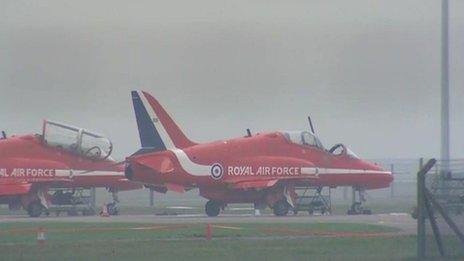Red Arrows death: Ejection seat firm 'put lives at risk'
- Published
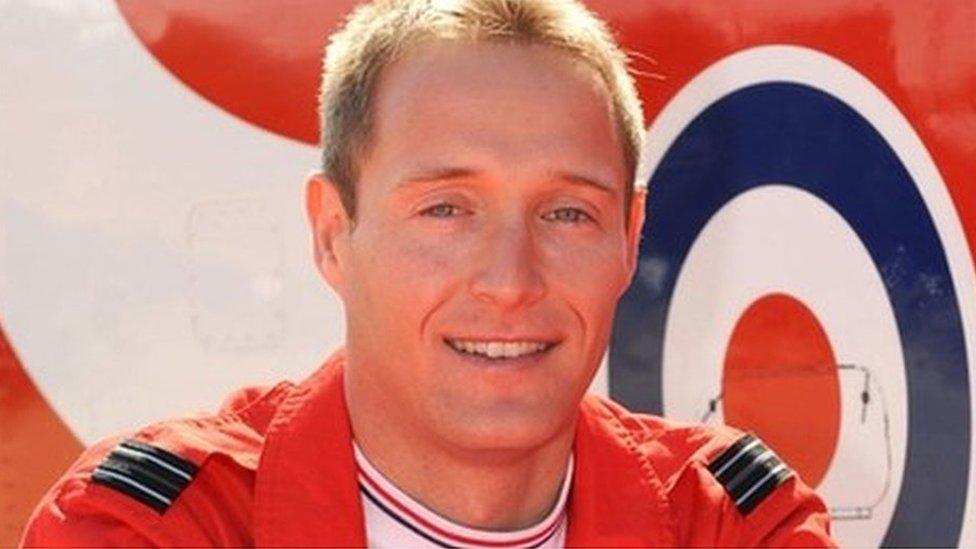
Flt Lt Sean Cunningham died after being ejected from his aircraft in 2011
An ejection seat manufacturer - prosecuted over the death of a Red Arrows pilot - put many pilots at risk over a lengthy period, a court heard.
Flt Lt Sean Cunningham, 35, was ejected from his jet while it was on the ground at RAF Scampton in 2011.
The parachute on the seat did not then deploy and the airman was fatally injured, Lincoln Crown Court heard.
Martin-Baker Aircraft Ltd previously admitted to breaching Health and Safety law.
Earlier, the court heard how the Middlesex-based company has already agreed to pay £550,000 in prosecution costs as a result of the guilty plea.
More on this and other stories from across Lincolnshire
However, in a statement the company said: "It should be noted that this was an isolated failure relating to the tightening of a nut... by RAF Aerobatic Team mechanics."
It added its ejection seats were in use by 92 air forces and had saved more than 7,000 lives.
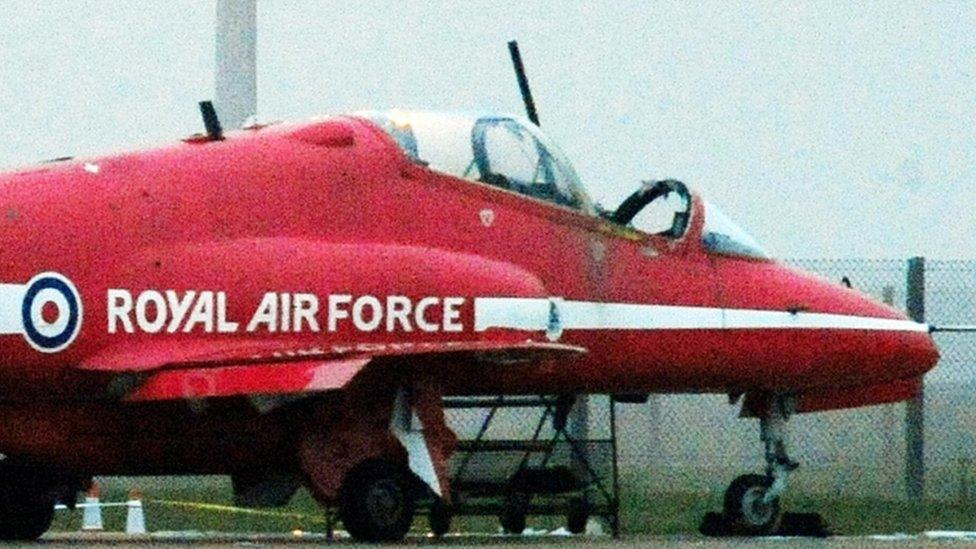
The ejection seat on Flt Lt Cunningham's Hawk T1 fired while he was carrying out pre-flight checks
But Rex Tedd QC, for the prosecution, said: "There was a risk to many pilots over a lengthy period. The defendant's failure was anything but isolated."
"If the pilot was ejected from the Hawk aircraft, two shackles would not release from one another and would jam together and the main parachute would not deploy," he said.
"The pilot would be several hundred feet in the air and there could only be one result of that, and that is the pilot's death."
Mr Tedd also told the court: "Sean's two biggest fears in life were being ejected from an aircraft, and the injuries that he would sustain, and dying at a young age. Horrifically he experienced both."

Timeline of events:
8 November 2011: Flt Lt Sean Cunningham died after being ejected from a Hawk T1 jet while on the ground at the Red Arrows base at RAF Scampton
9 November 2011: The day after his death, the MOD suspended training flights of aircraft fitted with the MK10 ejection seats including Hawk T1, Tornado and Tucano
22 November 2011: An inquest, which opened and adjourned in Lincoln, heard the Red Arrows pilot died from multiple injuries after being ejected from an aircraft. The coroner's court was told he fell from a height and had hit the ground, still strapped to his seat
December 2011: The funeral of Flt Lt Cunningham was held at Coventry Cathedral, attended by 800 mourners including RAF personnel. The halted flights were resumed
March 2013: The Crown Prosecution Service said it would review the pilot's death after Lincolnshire Police handed over a file of evidence
April 2013: Prosecutor Alison Storey said no charges would be brought over the fatality because there had been insufficient evidence on whether anyone had breached their duty of care
January 2014: Coroner Stuart Fisher recorded a narrative verdict after a three-week inquest into Flt Lt Cunningham's death
September 2016: The Health and Safety Executive said it would prosecute Martin Baker Aircraft Ltd for an alleged breach of health and safety law
January 2017: The ejection seat firm appeared in court charged with a breach of health and safety law
May 2017: Martin-Baker Aircraft Ltd pleaded not guilty at Lincoln Crown Court to breaching Section 3(1) of the Health and Safety at Work Act 1974, external
Jan 2018: Company director John Martin pleads guilty to charges on behalf of the Uxbridge-based company

An earlier inquest into Flt Lt Cunningham's death heard the Iraq war veteran, who grew up in Coventry, had been carrying out pre-flight safety checks in his Hawk T1 jet when the seat fired.
It emerged during the hearing the ejection seat firing handle had been left in an unsafe position meaning it could accidentally activate the seat.
His parachute failed to deploy because a nut and bolt had been fastened too tightly.
Martin-Baker had been aware of the possibility of the parachute mechanism jamming as early as 1990, the inquest was told.
The hearing continues.
- Published22 January 2018

- Published29 January 2014
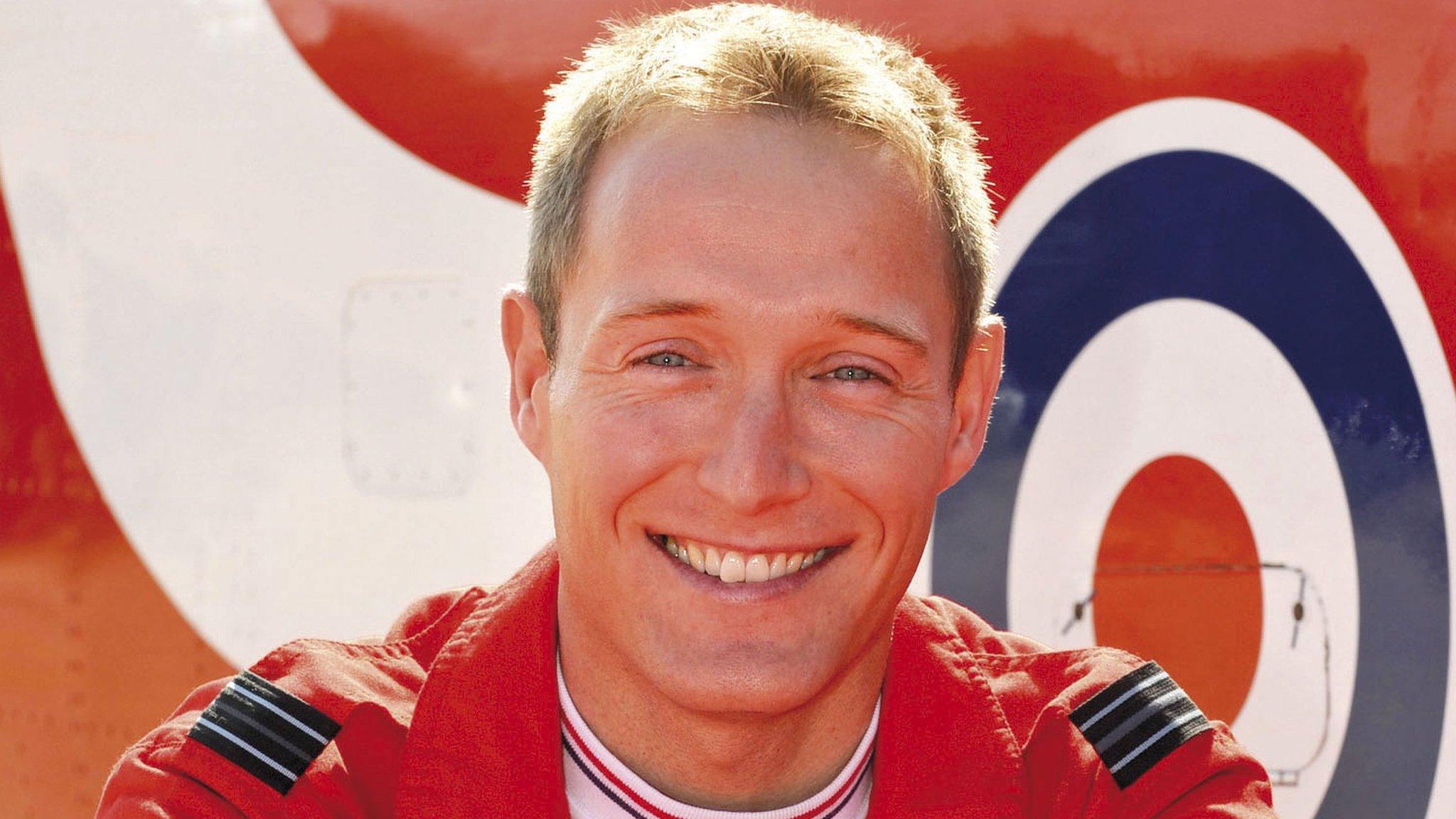
- Published29 January 2014
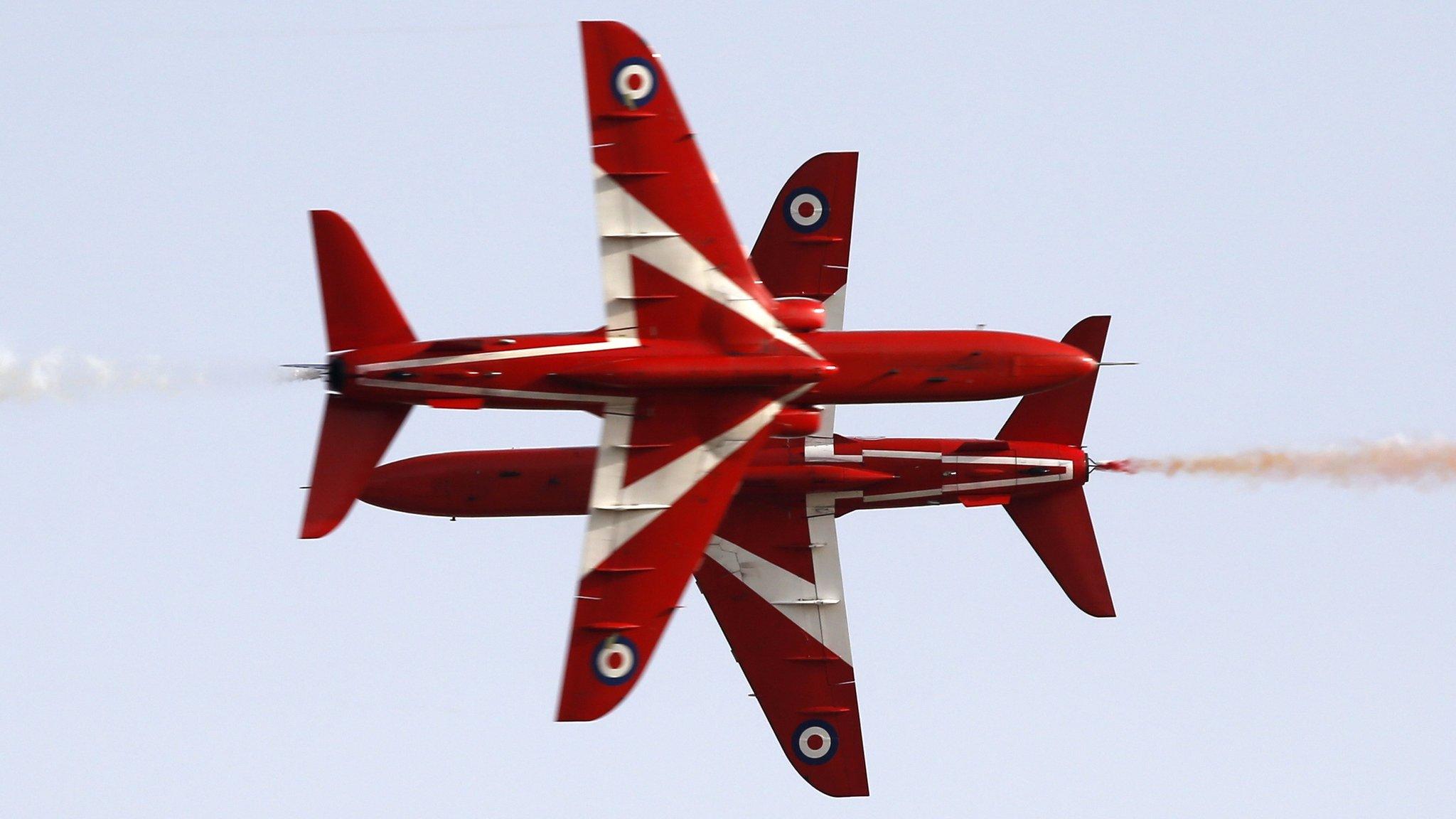
- Published30 April 2013
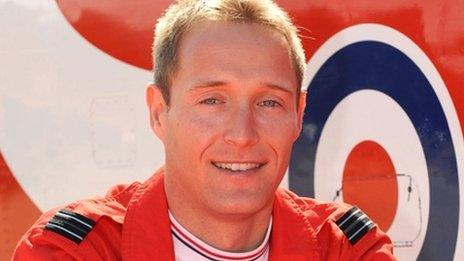
- Published1 December 2011
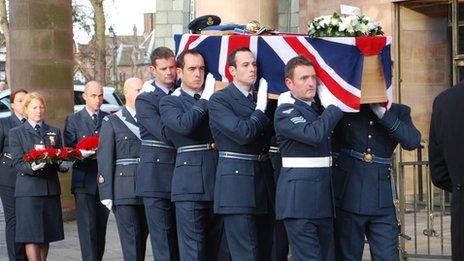
- Published8 November 2011
